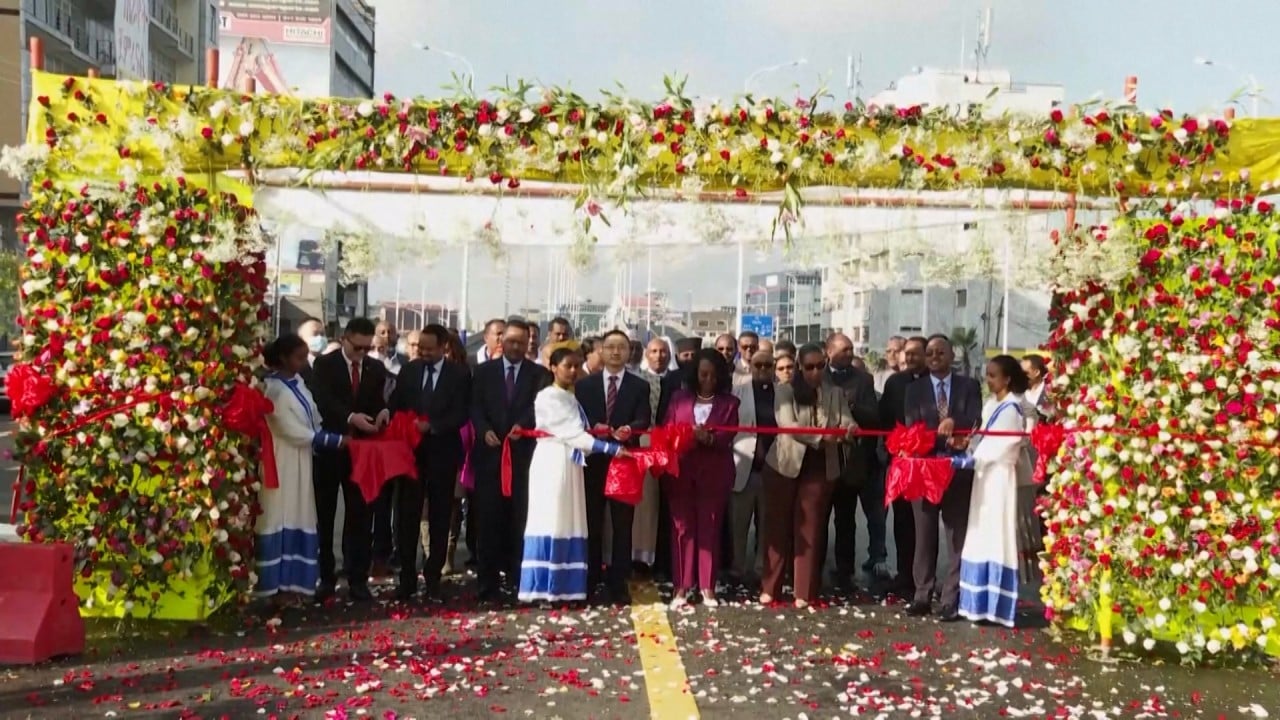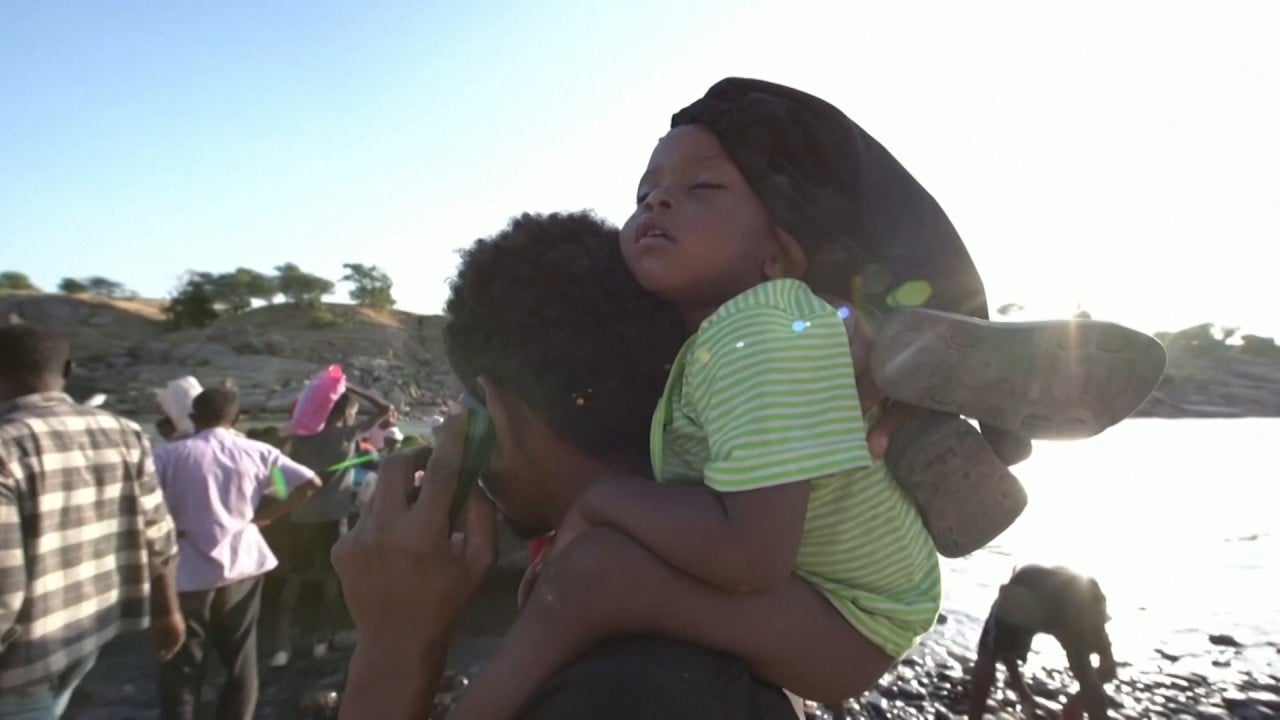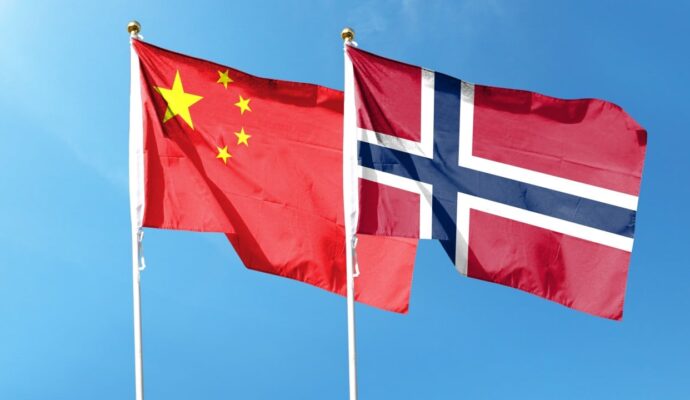He also travelled to the Afar region, where he held talks with Afar Regional State President Awol Arba and other leaders.
China pledges food, funds to key Horn of Africa partner Ethiopia
China pledges food, funds to key Horn of Africa partner Ethiopia
Tigray and Afar were the regions most affected by the Tigray war, which broke out in November 2020 when Tigray People’s Liberation Front (TPLF) forces attacked the Northern Command headquarters of the Ethiopian National Defence Force (ENDF), as well as a number of other bases in Tigray.
At the meeting in Addis Ababa, Demeke assured the Chinese envoy that the Ethiopian government was determined to fully implement the Pretoria peace agreement. Demeke said he appreciated China’s continued development aid to Ethiopia and its constructive role in addressing security, development and governance challenges in Africa.
While details of the discussions in Tigray and Afar were not made public, Tigray Television reported on Tuesday that Xue’s team was expected to discuss the possibility of resuming construction on Giba Dam. The water project on the outskirts of the Tigray region’s capital Mekelle had stalled because of the war.
Xue’s trip came after Chinese ambassador to Ethiopia Zhao Zhiyuan led a delegation of Chinese diplomats and business leaders in June to discuss implementing the Pretoria peace accord and post-conflict reconstruction.
On Thursday, Wu Peng, the Chinese foreign ministry’s director general of African affairs, confirmed Xue’s meetings in Addis Ababa, Tigray and Afar.
“China remains committed to supporting the Ethiopia peace process and post-conflict reconstruction,” Wu posted on social media platform X, formerly Twitter.
During the Belt and Road Forum for International Cooperation in October, Chinese President Xi Jinping promised Abiy that China would “support and participate in Ethiopia’s post-war reconstruction and economic revitalisation”.
China has its first overseas military base as well as vast investments in the Horn of Africa – home to Djibouti, Eritrea, Ethiopia, Somalia, South Sudan and Sudan. The region has been torn by civil wars, Islamist insurgencies and military coups.
Last year, China proposed a peace initiative to help Horn of Africa countries tackle the triple challenges of security, development and governance.
Will China take a front seat to resolve conflicts in the Horn of Africa?
Will China take a front seat to resolve conflicts in the Horn of Africa?
While meeting Demeke in Addis Ababa on Monday, Xue underscored the need to hold a second conference.
Lukas Fiala, coordinator of China Foresight at LSE Ideas, a London School of Economics think tank, said Ethiopia’s political stability was important to Beijing as the country was a long-standing diplomatic partner and a major destination for Chinese investment in the region.
“Not only is China interested in protecting its economic investments, but the close relationship with Addis Ababa has quickly made Ethiopia a litmus test for China’s crisis diplomacy and approach to insecurity abroad,” Fiala said.
Fiala said while China generally promoted a statist approach to security, supporting central governments over non-state actors or rebel groups, “Beijing realises that lasting stability in Ethiopia can only emerge from a political solution that is accepted by both the central government and the northern Tigray region”.
“It is worth remembering that TPLF was in the driver’s seat before Abiy Ahmed became prime minister. Given that this was when Ethiopia’s and China’s economic relationship strengthened considerably, China has at the very least a historical connection to the TPLF,” Fiala added.
He said while China was not the main actor in the African Union-led peace process, positive economic signalling from Beijing could support the ongoing efforts to facilitate lasting stability in Ethiopia.
Fiala added that the key question was whether promises of further investment would materialise in time without simultaneously increasing Ethiopia’s debt burden.
“Lasting debt relief would be another influential tool Beijing could use to support Ethiopia’s economic recovery,” he said.
On the sidelines of the Brics summit in August, Xi promised to suspend Ethiopia’s payments on debt maturing in 2023 and 2024 as part of the common framework for debt restructuring.
Between 2000 and 2022, China pledged US$14.1 billion in loans to Ethiopia, according to data from Boston University’s Global Development Policy Centre. Beijing funded the building of the Addis Ababa-Djibouti railway, which is part of China’s Belt and Road Initiative, as well as the Addis Ababa light rail.
Seifudein Adem, a global affairs professor at Doshisha University in Japan, said China realised Ethiopia’s “immense potential” and wanted the country to move quickly to end its conflicts and ensure that Ethiopians could “enjoy the fruits of peace and prosperity”.
He said Beijing’s involvement in the peace process would help it learn about the dynamics of conflict management, conflict resolution and peacemaking.
“As a rising global power, China seeks to enhance its experience in these areas. The experience thus gained will prove helpful for her in other parts of Africa and elsewhere. In this sense, the process is as important for China as the outcome,” Adem said.
He added that the Horn of Africa is an ideal place for gaining this experience, as it is home to old and new states, interstate conflicts and internal conflicts, conflicts over resources and conflicts over identity.
The Horn of Africa is also a geostrategic magnet for major global powers, which is perhaps why Xue was appointed special envoy for the region the first place, Aden said.
Chinese envoy to Horn of Africa rejects foreign intervention
Chinese envoy to Horn of Africa rejects foreign intervention
According to David Shinn, a professor at George Washington University’s Elliott School of International Affairs in Washington and former US ambassador to Addis Ababa, Chinese companies were engaged in several construction and manufacturing projects in the Tigray region valued at over US$4 billion before the conflict broke out. Beijing had to evacuate personnel associated with those projects.
“Presumably, it would like to resume those activities,” he said, adding that China had also been a major source of loans for Ethiopia, although they had declined significantly in recent years.
“China consistently called for an end to the fighting in Ethiopia and encouraged dialogue but otherwise played a minor role in the peace process.”
Shinn said much of the reconstruction funding would have to come from Ethiopia’s own resources.
“Ethiopians created this tragedy and the international community expects them to take the lead in recovering from it,” he said.
“To the extent the international community contributes to the effort, it will have to be largely in the form of aid and not loans that add to Ethiopia’s already extensive external debt.”




